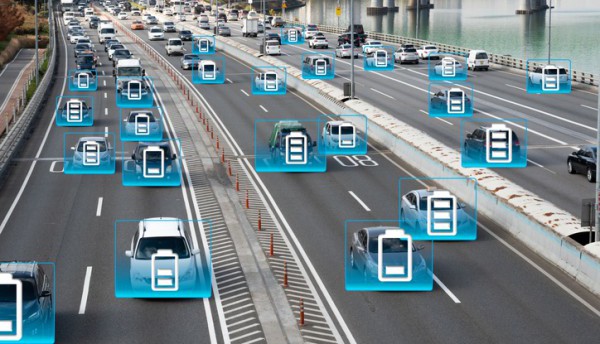
In 2024, the global automotive industry faced several challenges. Tariffs and trade barriers imposed by various countries on Chinese new-energy vehicles (NEVs) have disrupted market access and intensified competition. To navigate these challenges, companies are prioritizing innovation and quality. Advanced technologies, such as artificial intelligence and autonomous driving features, are becoming essential for standing out in a crowded market. Automakers are investing in smart technology, enhanced safety systems, and user-friendly features to meet growing consumer expectations.
In this context, S&P Global Mobility’s interview with a Nio spokesperson offers valuable insights into how one of the leading players in the electric vehicle (EV) market is addressing these challenges and seizing opportunities for growth. Nio is a global smart electric vehicle company with R&D and manufacturing facilities in China, the U.S., Europe, and Singapore. It operates sales and service networks in several countries, serving customers in over 300 cities worldwide.
Key takeaways:
- Challenges: Certain countries' tariffs on mainland Chinese NEVs such as Nio are disrupting the automotive market, intensifying competition and leading to price wars. Misinformation is also influencing public perception. The industry should prioritize innovation, quality and brand building to return to healthy competition and value creation.
- Developments: Nio is leading the automotive shift toward intelligent technology with innovations such as a 5-nanometer (nm) chip, SkyOS, Banyan3 and the Nio World Model for autonomous driving. These advancements underscore Nio's technological strength, with plans for further investments to enhance user experiences.
- Outlook for 2025: Global sales of battery-electric vehicles (BEVs) and plug-in hybrid electric vehicles (PHEVs) reached 1.69 million in September 2024, with a 22% EV penetration rate, and mainland China alone accounted for 1.12 million. NEV penetration in mainland China hit 51.2%, indicating rapid market growth. Nio is enhancing competitiveness through infrastructure, innovation and global expansion to support a sustainable future.
- Emerging issues: By 2035, mainland Chinese brands are projected to represent half of the top 10 global automotive manufacturers, with Nio aspiring to join them. Success hinges on long-term planning and effective execution to capitalize on the shift toward intelligent and electric vehicles.
The following is an edited transcript of the conversation.
S&P Global Mobility: What were the most significant challenges your business encountered this year?
Nio: Several countries have imposed tariffs and trade barriers on the import of mainland Chinese NEVs, which is impacting global brands such as Nio. On a broader scale, competition within the automotive industry has intensified with an influx of new products entering the market.
While some brands have resorted to price wars, diverting the industry from a path of healthy competition, a more complex challenge has emerged around public opinion resulting from inaccurate information that has, to some extent, affected regular business operations.
Looking ahead, we hope the entire sector will focus on technological innovation, improving product quality and brand building, returning to value creation as the basis for business — steering the industry back toward a path of healthy competition.
What was the most positive development you witnessed in your sector in 2024?
There have been significant breakthroughs in intelligent technology. With the rise of AI, the automotive industry is undergoing a major shift toward smart technologies and welcoming innovations in smart cabins, assisted and intelligent driving, and intelligent chassis systems. Nio has introduced several advancements, including the first self-developed 5-nm automotive-grade chip (Nio Shenji NX9031), the full release of its SkyOS operating system, the AI-based smart system Banyan3 and China’s first autonomous driving model, Nio World Model (NWM). Such innovations highlight Nio's strong technological foundation, and we are planning further investments in intelligent technology to offer industry-leading user experiences.
Looking ahead to 2025, how do you perceive your business prospects and the overall outlook?
Figures show that global sales of BEVs and PHEVs reached 1.69 million in September 2024, bringing the penetration rate of EVs to over 22%, with mainland China accounting for 1.12 million of those sales. According to the China Passenger Car Association (CPCA), the penetration rate of NEVs in mainland China reached 51.2% in September. The CPCA estimates that October’s NEV penetration will also exceed 50%, indicating that NEV development in mainland China has progressed faster than expected and the market has moved beyond the need for consumer education.
While the outlook appears positive, Nio continues to enhance its overall competitiveness, with a strong focus on charging and battery-swapping infrastructure, technological innovation and global market expansion. Strengthening our organisational capabilities across technology, products, services and community will consistently provide users with experiences that exceed expectations as we continue to uphold our mission of 'Blue Sky Coming' — cocreating a sustainable and brighter future. By fostering external collaborations and promoting the adoption of electric vehicles worldwide, we aim to contribute to a green, low-carbon and sustainable future for society.
Is there any specific concern or emerging issue you would like to highlight?
By 2035, we anticipate that mainland Chinese brands will make up half of the top 10 automotive manufacturers globally — with Nio striving to be among them. The upward development of mainland China’s automotive industry will require a considerable amount of time, patience, long-term planning and short-term execution. By doing it right, brands can capitalize on this once-in-a-century transformation in the automotive sector, driven by the shift to intelligent and electric vehicles.








